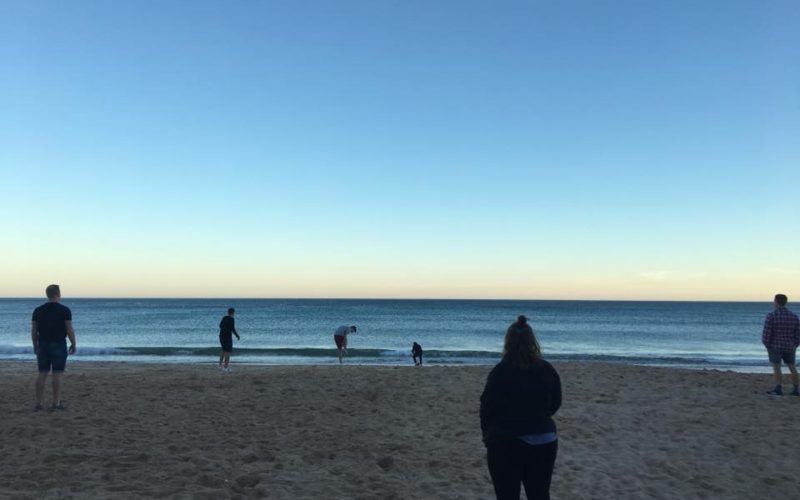Studying abroad is all about exploring. Not only are you exploring a new place, a new society, a new education system – but you have the opportunity to explore who you are as well. Put yourself out there, get outside of your comfort zone, try something new! Since being abroad forces you to do some of this anyways, it’s a little easier to take it one step further.
For me, I signed up for a one-week long physical geography course – outside of the human geography that I usually study. The hitch – or maybe the perk – was that it was a field research course in the Western Algarve of Portugal. I had very basic Portuguese skills from my time in Brazil, and no experience with physical geography or research techniques but I was excited to have such a different experience. It is definitely not something that would’ve been possible in Madison, and I jumped at the opportunity to add one more European country to my list.
When we met at the airport, I started to get really nervous as I realized I was the only student on exchange, the only student who didn’t do physical geography as my degree. The only one without experience, without the knowledge of the equipment and processes, and the only American. In a sea of British physical geography 3rd years, I departed the UK with my backpack and an attempted open mind. It was a little terrifying, but I realized that both the students and the professors understood that this was, well, foreign to me.
I was adopted by a group of girls who became good friends and were always willing to take a step back and help me catch up, explain terminology and what exactly we were trying to do. It was my first time keeping a field notebook, learning about everything from river invertebrates to beach hydrology. When it came time to conduct our own research project – complete with a presentation, data collection day and a research paper – I tried to contribute as much as possible, although the other group members often had to take the lead.
Our research dealt with cliff stability on the nearby beach, and it took me awhile to understand the equipment we were using, and how to use the data we collected to create analyses for our hypotheses. It was a lot of work, and at times I thought my brain was going to malfunction. I was so obviously out of my element – literally, crawling up cliff sides in a hard hat to read the different slope angles.
But I learned so much that was new to me, and I felt so accomplished when I was done. I learned something about myself too – as a group member told one of my professors, I can be a fast learner. I put my mind to it, I put effort into it, I work hard to pick up the slack and (as the Beatles said) with a little help from my friends, I can do anything. Believe in yourself, because we are capable of more than we know and it only takes a shove in a certain direction to show us that.
I am glad I put myself out there. I always preach to step outside of your comfort zone, but when it comes down to it, it’s always hard, it’s always scary. But it’s always worth it.




